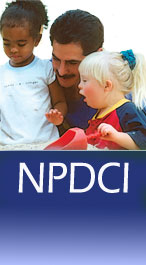Family-Professional Collaboration: Resources
Family-professional collaboration supports opportunities for both relationship building and the active participation
of parents and practitioners in achieving mutually agreed upon goals. The collaborative efforts build and strengthen
family and professional capacity to provide or mediate the provision of resources, supports, and services that ensure inclusion of children with disabilities in typical school and community activities.
Why Do It? (the evidence base)
-
Dunst, C. J., & Trivette, C. M. (2009). Meta-analytic structural equation modeling of the influences of
family-centered care on parent and child psychological health. International Journal of Pediatrics,
2009, 1-9. http://www.hindawi.com/journals/ijped/2009/576840/ -
Dunst, C. J., Trivette, C. M., & Hamby, D. W. (2007). Meta-analysis of family-centered helpgiving
practices research. Mental Retardation and Developmental Disabilities Research Reviews, 13(4),
370-378. http://onlinelibrary.wiley.com/doi/10.1002/mrdd.20176/pdf -
Trivette, C. M., Dunst, C. J., & Hamby, D. W. (2010). Influences of family-systems intervention practices
on parent-child interactions and child development. Topics in Early Childhood Special Education,
30(1), 3–19. http://tec.sagepub.com/content/30/1/3.full.pdf+html
Read About It (books, chapters, and articles)
- Blue-Banning, M., Summers, J. A., Frankland, H. C., & Nelson, L. L. (2004). Dimensions of family and professional partnerships: Constructive guidelines for collaboration. Exceptional Children, 70(2), 167-184. http://doh.state.fl.us/AlternateSites/CMS-Kids/providers/early_steps/tra...
- Dunst, C. J., Trivette, C. M., & Snyder, D. M. (2000). Family-professional partnerships: A behavioral science perspective. In M.J. Fine & R.L. Simpson (Eds.), Collaboration with parents and families of children and youth with exceptionalities (2nd ed., pp. 27-48). Austin, TX: Pro-Ed.
- Fialka, J. M., Feldman, A. K., & Mikus, K. C. (2012). Parents and professionals: Partnering for children with disabilities. Thousand Oaks, CA: Corwin.
- Rouse, L. (2012). Family-centered practice: Empowerment, self-efficacy, and challenges for practitioners in early childhood education and care. Contemporary Issues in Early Childhood, 13(1). http://dx.doi.org/10.2304/ciec.2012.13.1.17
- Turnbull, A., & Turnbull, R. (2010). Families, professionals, and exceptionality: Positive outcomes through partnerships and trust (6th ed.). Upper Saddle River, NJ: Merrill Prentice Hall.
See for Yourself (videos and demonstrations)
- Chen, D., & Cox, A. R. (2005). The first IEP: Parent perspectives. Baltimore, MD: Brookes. Cost: $49.95. http://products.brookespublishing.com/The-First-IEP-P555.aspx
- CONNECT Module 4: Family-Professional Partnerships http://community.fpg.unc.edu/connect-modules/learners/module-4
- Edelman, L., DeVarona, C., & Mogen, S. (Producers). (2009). Finley’s parent-teacher conference [Video]. Denver: Colorado Department of Education, Results Matter Video Library. http://www.cde.state.co.us/resultsmatter/RMVideoSeries.htm#top
- Edelman, L. (Producer). (2009). Reflections during the final home visit [Video]. Denver: Results Matter Video Library, Colorado Department of Education. http://www.cde.state.co.us/resultsmatter/RMVideoSeries_EarlyIntervention...
- Edelman, L., DeVarona, C., & Mogen, S. (Producers). (2009). Sharing documentation with families [Video]. Denver: Results Matter Video Library, Colorado Department of Education. http://www.cde.state.co.us/resultsmatter/RMVideoSeries.htm#top
- Edelman, L., DeVarona, C., & Mogen, S. (Producers). (2009). Sharing video documentation with families [Video]. Denver: Results Matter Video Library, Colorado Department of Education. http://www.cde.state.co.us/resultsmatter/RMVideoSeries.htm#top
- Edelman, L. (Producer). (2009). Thompson family circles: All about relationships [Video]. Denver: Results Matter Video Library, Colorado Department of Education. http://www.cde.state.co.us/resultsmatter/RMVideoSeries_PracticesHereAndT...
- Edelman, L., DeVarona, C., & Mogen, S. (Producers). (2009). Using video to celebrate progress [Video]. Denver: Results Matter Video Library, Colorado Department of Education. http://www.cde.state.co.us/resultsmatter/RMVideoSeries_EarlyIntervention...
- Edelman, L. (Producer). (2010). Using video to support inclusion and collaboration with families [Video]. Rohnert Park, CA: Desired Results access Project, Napa County Office of Education, Research and Professional Development Center. http://draccess.org/videolibrary/
Find it Online (websites with additional resources)
- CONNECT Module 4 http://community.fpg.unc.edu/connect-modules/learners/module-4
- Family-Centered Principles and Practices http://www.nectac.org/topics/families/famctrprin.asp
- Institute for Patient- and Family-Centered Care http://www.ipfcc.org/
- National Center on Parent, Family and Community Engagement http://eclkc.ohs.acf.hhs.gov/hslc/tta-system/family
- SpecialQuest Module on Building Relationships With Families http://1.usa.gov/VoXzlu

